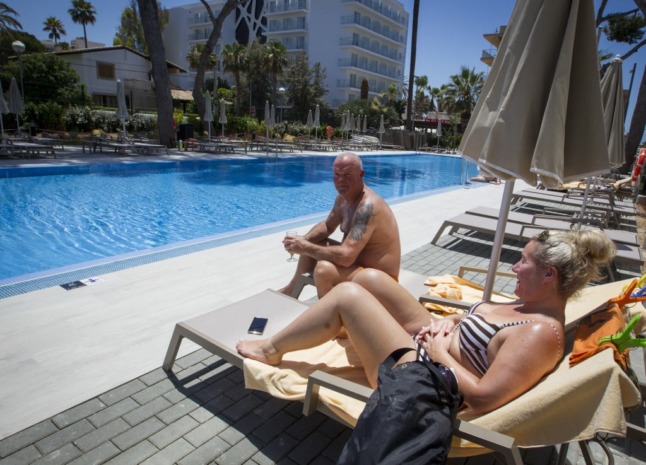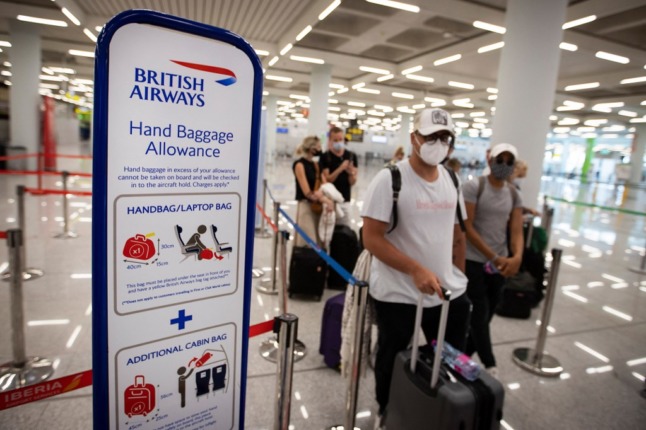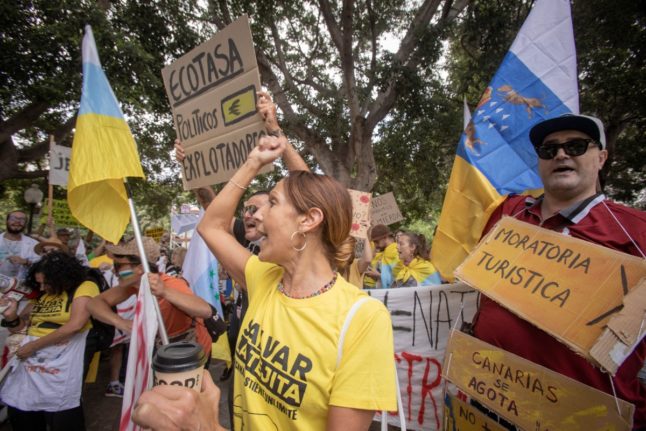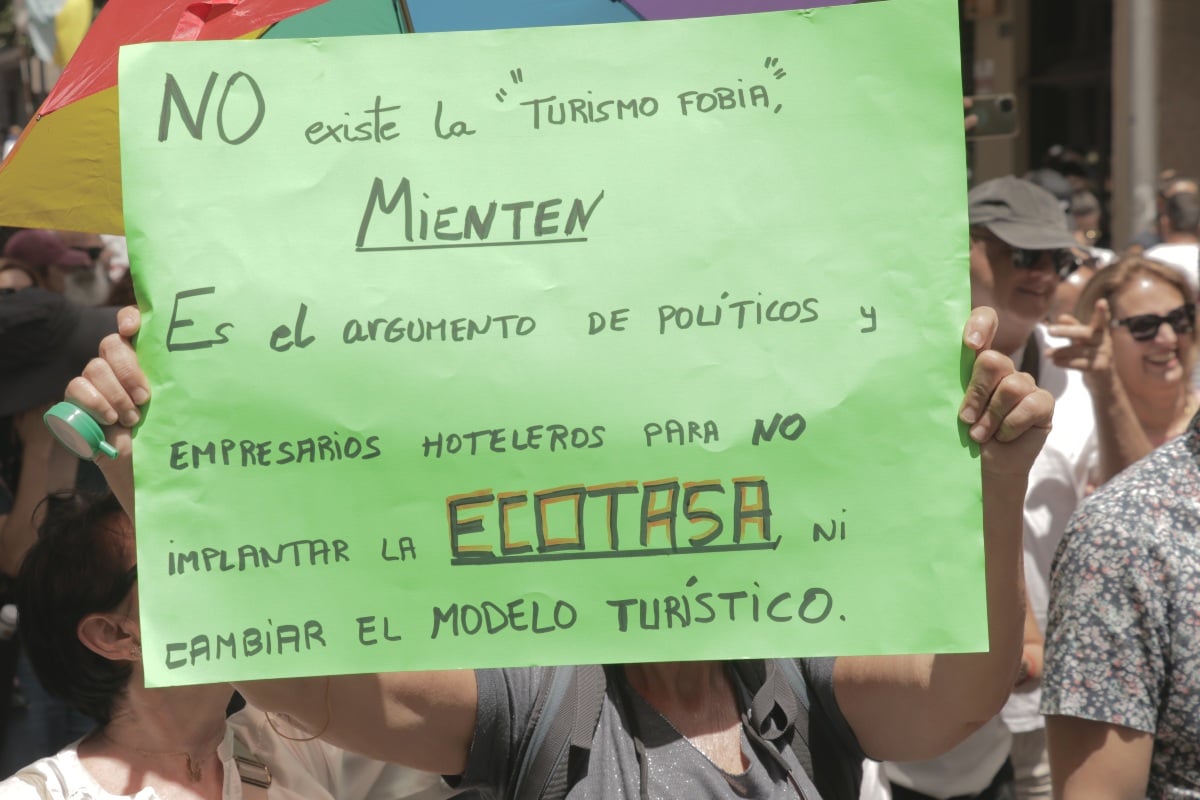Rising COVID-19 cases in the UK
This week the British government faced calls to reintroduce restrictions as the UK hit 50,000 active Covid cases for the first time in three months, the highest rate in Europe.
In response some doctors are calling for the rollout of England’s “Plan B” – a move that would reimpose mandatory face masks and encourage people to work from home.
Daily UK infections have been above 40,000 for nine days in a row, but deaths are falling slightly and the government is hoping the UK vaccine rollout will see it through. Speaking in Northern Ireland recently, Prime Minister Boris Johnson claimed that the country is in an “incomparably better position than last year because of vaccines.”
But while the government shows no sign of reintroducing restrictions in the UK, travellers wanting to come to Spain could be faced with them amid concerns that holidaymakers are importing COVID cases.
Imported cases into Spain
Dubbed by one Spanish newspaper as the ‘achilles heel’ of Spain’s pandemic recovery, there are worries that travellers – particularly British – are importing cases from abroad and increasing the infection rate.
Currently, the country bringing most coronavirus positives to Spain is Romania, with 196 cases detected in the last four weeks and with more than 16,000 daily cases in their own country explaining why it has the highest infection rate in Europe.
The second country ‘exporting’ the most cases to Spain is the UK, with statistics from Spain’s Ministry of Health showing over 200 imported cases in the last week, and the popular tourist hotspot of Benidorm on the Costa Blanca has seen their local infection rate rise to five times the national average in Spain.
On Thursday, Spanish newspaper ABC reported how mask-wearing among UK tourists in Benidorm isn’t as common as among locals and residents, as British holidaymakers are not aware that the rules and attitudes to masks aren’t as lenient in Spain as in the UK, especially regarding indoor spaces.
But Spain is not the only country taking note of the situation in the UK.
Morocco has banned direct flights from the UK amid fears about the growing case rate, as well flights from Germany and the Netherlands.
According to Our World In Data, the weekly rate of Covid infections per 100,000 people is just 6 in Morocco and almost 480 for the UK – 80 times higher.
In Spain the weekly infection rate is 27.8 confirmed cases per 100,000 people according to the international health data site, although Spanish epidemiologists on Thursday recorded a slight rise in the fortnightly infection rate of 3 points up to 43.2 cases per 100,000.

The current rules
People aged 12 and over travelling to Spain from the UK currently have to either present a negative COVID-19 NAAT test (PCR) taken within 72 hours of travel or proof of full vaccination with EMA or WHO approved vaccines.
Certificates of recovery – a medical document certifying that you have recovered from COVID-19 in the last 6 months prior to travel – is not currently accepted for arrivals from the UK.
The rules are similar to those that apply to most travellers coming from high EU risk countries, even though non-essential travel (tourism) from other third countries is still not allowed in many cases and they have to be fully vaccinated, unlike in the case of Britons who can visit Spain with a negative PCR test.
So despite its new status as a non-EU nation, the UK is being given preferential treatment over other third countries, most likely as a result of the importance British holidaymakers have for the country’s tourism industry.
There is a list of third countries whose travellers are exempt from the usual requirements (vaccination, testing), but the UK is no longer on it.
The Spanish government also requires all international travellers to fill in a pre-travel declaration form.
READ ALSO:
Will Spain’s rules for British travellers change?
With cases skyrocketing in the UK and rising in Spain’s tourist hotspots, it remains to be seen if Spain will introduce more stringent restrictions for arrivals from the UK, but it seems unlikely.
Spain has until now only introduced complete travel bans or quarantine requirements for arrivals from India and a number of Latin American and African nations over variant fears and their low vaccination rates and high infection rates, strict measures it have since lifted, although most third-country visitors can only travel to Spain if fully vaccinated and not for tourism .
So could the exception that’s being made now for UK tourists over other third country nationals in terms of allowing them to travel to Spain for non-essential purposes and with a PCR test be scrapped?
This would no doubt depend on the severity of infections, new variants and hospitalisations in both countries, but as stated previously British tourists represent a key part of the Spanish tourism industry, with 18 million visitors in 2019 and Spain still their preferred destination in 2021 despite the British government’s challenging traffic-light restrictions.
Covid vaccination rates are also very high in both countries – 89 percent of Spain’s over 12s have had both doses and 79 percent in the UK – with booster Covid jab campaigns also underway in the two nations.
However as with everything during the pandemic, the situation and restrictions are changeable. If the infection rate continues to climb in the UK, or the new Delta Plus variant mutation is imported in great numbers into Spain’s coastal regions to the point that it begins to threaten Spain’s COVID recovery, restrictions may be tightened for British travellers.
READ ALSO:




 Please whitelist us to continue reading.
Please whitelist us to continue reading.
Member comments